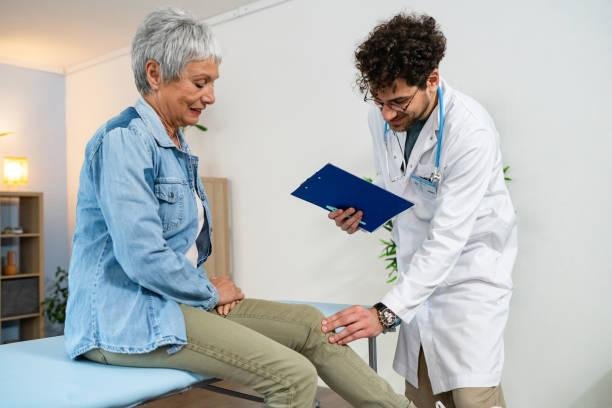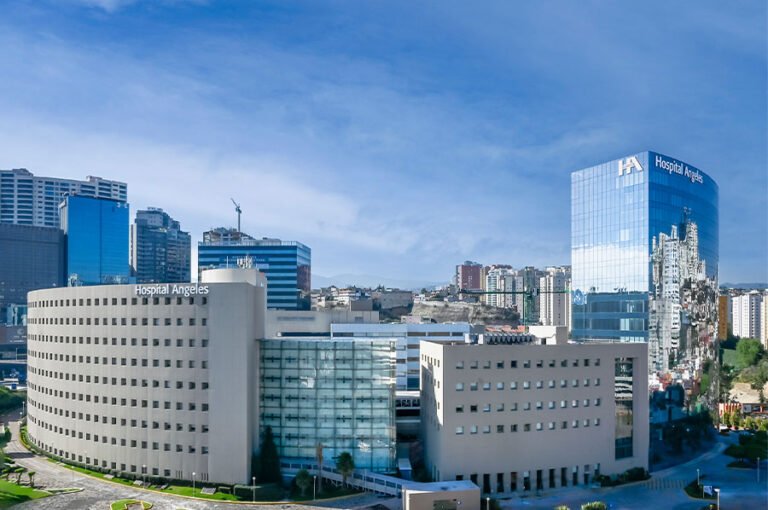How to Know You’re Ready for Orthopedic Surgery — And What Happens Next with Mezocare

Introduction: Nola’s Story — When Sudden Pain Changes Everything
At 83 years old, Nola had lived a life defined by independence. She walked to the local open market twice a week, stayed active by training three days a week, and filled her calendar with social gatherings and book clubs. She had never faced mobility issues and had never needed surgery. That is why the moment her knee suddenly gave out, it was more than a surprise. It was frightening.
Instead of waiting in uncertainty, we took action right away. Through Mezocare, Nola was seen by one of Mexico’s leading knee specialists the very next day. The consultation was thorough, with advanced imaging that left no room for guesswork. The diagnosis was clear: severe joint deterioration. The recommendation was surgery.
Hearing the word “surgery” at her age could have been overwhelming, but the experience was the opposite. Because Mezocare connected her directly with trusted surgeons, she had a surgery date confirmed for the following week. Every step, from pre-op planning to recovery, was explained and tailored to her needs. What could have been months of waiting and uncertainty elsewhere turned into a swift, coordinated plan.
The speed of care gave Nola more than medical treatment. It gave her peace of mind. She knew she was not just another patient in a long line. She was a person whose future mobility and independence mattered. Today, her journey shows what is possible when sudden health challenges are met with fast action, compassionate specialists, and a system built around the patient.
The 7 Signs You’re Truly Ready for Orthopedic Surgery
Knowing when you’re ready for orthopedic surgery is about more than enduring pain — it’s about understanding the tipping point where surgery offers the greatest benefit for your health, mobility, and quality of life.
1. Persistent Pain That Doesn’t Respond to Conservative Treatments
If physical therapy, anti-inflammatory medication, and lifestyle adjustments haven’t eased your discomfort after several months, it’s a sign that joint damage may be too advanced for non-surgical solutions.
Reference: American Academy of Orthopaedic Surgeons (AAOS) notes that persistent pain despite conservative treatment is a top surgical indicator.
2. Significant Loss of Mobility
When walking, climbing stairs, or even standing becomes difficult, it impacts independence and safety. This is often a sign of advanced joint deterioration.
3. Interference With Daily Life and Sleep
Pain that keeps you from sleeping or engaging in normal activities is not something to “just live with.” Quality of life is a key consideration for surgery readiness.
4. Joint Deformity or Visible Changes
Swelling, bowing, or misalignment of the joint can indicate structural changes that only surgery can correct.
5. Imaging Shows Severe Joint Damage
X-rays, MRIs, or CT scans revealing bone-on-bone contact or severe cartilage loss are strong clinical indicators.
6. Your Doctor Recommends Surgery
If a qualified orthopedic specialist suggests surgery after thorough examination and testing, it’s worth giving serious consideration.
7. You’re Mentally and Logistically Prepared
Being ready for surgery isn’t just physical — it’s also about feeling mentally confident, having the right support, and knowing what to expect during recovery.

Why Choosing the Right Moment Matters
Timing can affect both your surgical outcome and recovery experience.
- Too Early: You may undergo surgery when less invasive options could have worked.
- Too Late: Prolonged damage can make surgery more complex and recovery longer.
The Mayo Clinic emphasizes that optimal timing for joint replacement occurs when conservative methods no longer work, but before the joint deteriorates to the point where surrounding muscles and tissues weaken significantly.
What Happens Next with Mezocare:
The Step-by-Step Checklist
When you decide you’re ready for orthopedic surgery, here’s exactly how Mezocare guides you from decision to recovery:
1. Free Virtual Consultation
- Connect with one of our in-house specialists to discuss your symptoms, medical history, and goals.
- Get answers to your questions and understand your best options.
2. Specialist Match
- We pair you with a vetted orthopedic surgeon from our exclusive network in Mexico.
- Each surgeon is credentialed, experienced, and trained to international standards.
3. Medical Review & Imaging
- Upload any existing scans or undergo fast-track diagnostic imaging in Mexico City.
- Your surgeon creates a personalized surgical plan.
4. Transparent Cost & Treatment Package
- You receive a full breakdown of surgical costs, hospital fees, anesthesia, and aftercare — with no hidden charges.
5. Travel & Accommodation Coordination
- Our concierge team arranges flights, transportation, and hotel stays to align with your surgery schedule.
6. On-Site Arrival & Pre-Op Preparation
- Meet your care coordinator in person.
- Complete all pre-operative tests, meet your surgeon, and tour the hospital.
7. Surgery Day
- Undergo your procedure in a world-class facility that meets or exceeds U.S. safety standards.
8. Post-Op Care & Recovery Plan
- In-hospital recovery followed by customized physical therapy.
- Follow-up appointments and remote check-ins once you return home.
How Mezocare Ensures Safety and Quality
- Rigorous Vetting: Each surgeon undergoes credential checks, facility inspections, and peer reviews.
- International Standards: Partner hospitals are accredited by recognized global bodies.
- Patient Support: We stay in contact before, during, and after your surgery for a seamless experience.
Your Recovery Plan and Support System
Surgery is only part of the journey. Mezocare coordinates rehabilitation, pain management, and ongoing care — even after you return home.
We work closely with your surgeon and, if needed, your local physician to ensure continuity of care.

FAQs
1. How long will I need to stay in Mexico after surgery?
Typically 7–14 days, depending on your procedure and recovery speed.
2. Will my insurance cover this?
Coverage varies. We can help you explore reimbursement options.
3. Are the surgeons as qualified as in the U.S.?
Yes — many trained internationally and operate at facilities with global accreditation.
4. Is language a barrier?
No — all our partner surgeons speak fluent English.
5. What if I have complications after returning home?
We coordinate follow-up care remotely and with local providers.
6. Can I choose my own surgeon?
Yes — we provide options from our vetted network.
7. How much money can I save?
Most patients save 40–60% compared to U.S. costs.
8. Will I need physical therapy after surgery?
Yes — it’s a key part of full recovery, and we can arrange it in Mexico or your home city.
9. How soon can I travel after surgery?
Generally 7–10 days for most orthopedic procedures.
10. What types of payment do you accept?
Credit cards, wire transfers, and some financing options.
Take the First Step Today
With Mezocare, you can access world-class orthopedic care at a fraction of the U.S. cost, without sacrificing quality or safety. Our team manages every detail so you can focus on your health and recovery.
Book your free virtual consultation today and discover your best next step toward lasting relief.



